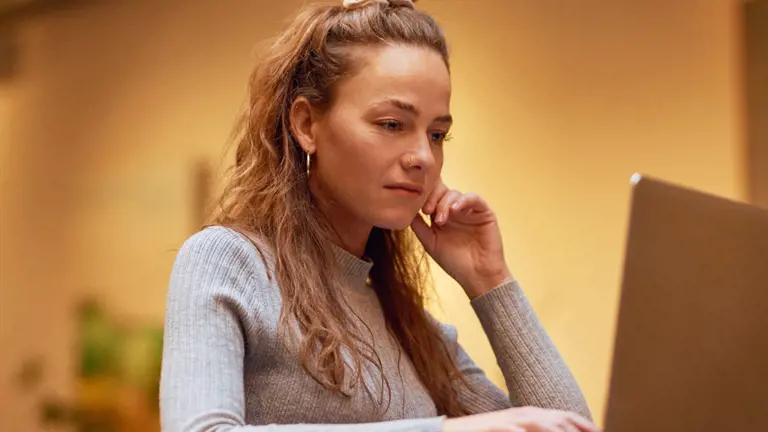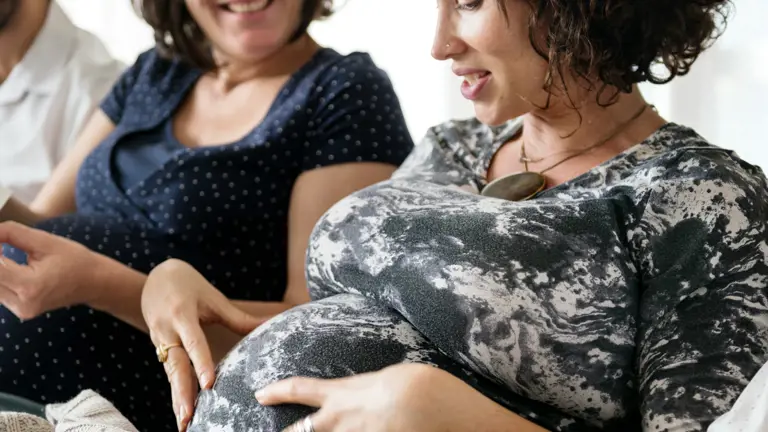
Pregnancy is often portrayed as a joyful and exciting chapter in life — and it certainly can be. It’s also a time of change, and it’s not unusual to experience moments of loneliness or emotional vulnerability along the way. If you’re going through pregnancy as a solo mum, remember that you're not alone and there's help out there if you experience any of these feelings.
In this blog post, we will explore different coping strategies and give you practical tips when you are pregnant and feel alone. You can also read our guide for solo mums to get advice on your journey as a single mother by choice.
Why you might feel lonely during pregnancy
We don't often talk about loneliness during pregnancy, but it's more common than you might think. And the feeling can show whether you’re in a relationship or preparing for parenthood as a solo mum.
Pregnancy brings different physical changes. Your belly is growing, your feet might be swelling and you’re gaining some extra weight. Emotional and hormonal shifts are also part of the process and all of these changes can contribute to feelings of loneliness.
Understanding loneliness during pregnancy
Emotional, hormonal and social shifts
It’s normal to experience mood swings or feel emotional when you’re pregnant. The hormonal changes that happen when you're pregnant can make you feel down, anxious or vulnerable, and you might find it harder to control your emotions.
Loss of usual routines and social life
Pregnancy can also make it hard to do the things you normally do every day. If you usually have a busy social life, a full-time job or many hobbies, you might find that your energy levels, physical limits and ability to focus begin to change. This can make you feel like you're not connected to the people who usually support you, especially if your friends are doing different things in life or don't really get what you're going through.
Isolation from friends
Not having someone to talk to right away can also intensify feelings of loneliness. You may feel different from friends who are on a different path to parenthood than you.
Depression during pregnancy - when loneliness runs deeper
It is common to feel lonely during pregnancy. However, in some cases, that loneliness may be a sign of something more serious. If you feel constantly sad or overwhelmed, and if these feelings are beginning to affect your daily life, it might be more than just loneliness and could be prenatal depression.
What is prenatal depression?
Prenatal depression is a type of clinical depression that happens during pregnancy. You can develop prenatal depression whether you're in a relationship or a single mother by choice, and it is more than just feeling down from time to time.
According to the NHS, common symptoms include:
- A feeling of sadness or low mood that continues and does not go away
- Feeling easily upset or more sensitive to things
- Feeling hopeless, guilty and blaming yourself
- Difficulty concentrating or making decisions
- Loss of interest in things you normally enjoy
When to seek help
There is a difference between having a bad day and feeling down all the time. If these feelings are starting to stop you from doing things, it may be time to ask for help.
Even if you're not sure if your feelings count as depression, it's a good idea to talk to your midwife or GP. They can help with your mental and physical wellbeing and find the right resources, whether that's counselling, support groups or medical treatment.
You don't need to wait until things feel impossible. Speaking up early can help you feel more in control and better supported.
Feeling alone and unsupported during pregnancy
Having someone to talk to, help with everyday tasks or just check how you're feeling means a lot when you are pregnant. When that support is missing, it’s easy to feel isolated or vulnerable. Fortunately, there are different ways to get support if your support system is limited at the moment or you’re going through pregnancy alone.
Why support matters
Support during pregnancy isn’t just about having someone to carry heavy shopping bags or go with you to scans. It’s also about emotional connection. Having people around you who listen to you, understand you and make you feel good about what you are going through, can make a big difference.
A strong support system has been shown to:
- Decrease anxiety and depressive symptoms
- Improve overall emotional resilience
- Help you feel more confident and prepared for motherhood
On the other hand, feeling alone can make you more stressed and stop you from enjoying the good parts of pregnancy. This is why it is so important to establish some form of support.
You can read more about solo motherhood and having a support system in the blog post ‘How to build a support system as a solo mum’.
Creating your own support network
If you feel alone when you are pregnant, it's important to remember that there are always ways to meet other people, even if your support network seems limited right now.
A good idea is to reach out to someone you trust. It can help you feel less alone if you talk on the phone to a friend, send a message to a family member or talk to a colleague.
You can also consider going to antenatal classes made for solo mums. These classes are a great way to meet other people who are on a similar journey to you and make new friends in a non-judgmental environment.
Another option is to look for online or local support groups. These groups can offer reassurance and give helpful advice. The SMBC app is a good example of an app that allows you to connect with other solo mums and share experiences.
You can also speak to your midwife or GP about how you’re feeling. They may be able to help you find other people or groups.
Practical tips for coping with pregnancy loneliness
When you're pregnant and feeling alone, those quiet moments can feel overwhelmingly quiet, and small worries can seem to grow louder. There is no one-size-fit-all solution for every kind of loneliness, but you can make small, planned habits that can make you feel better and help you feel close to yourself and your baby.
Here are some easy ways to look after your feelings during pregnancy:
Create daily rituals
Small rituals can bring stability to your everyday life, when you are experiencing emotional ups and downs. These rituals can be as simple as taking a moment to meditate every morning, or spending a few minutes each evening gently massaging your stomach and talking to your baby. These quiet, repetitive actions can help to make you feel safe and calm.
Start journaling
Writing down your thoughts is a good way to understand your emotions. You could write down the things you are grateful for or let your thoughts flow freely. Over time, your journal can be a source of reflection. It will help you to track your emotional journey throughout your pregnancy.
Give gentle meditation or mindfulness a try
A racing mind can be the result of loneliness, especially at night. Doing meditation or breathing exercises can help you to feel better and stop worrying. There are many mindfulness apps and guided meditations that are designed for pregnant women. Just five minutes a day can make a difference to feel more grounded.
Stay physically active
Exercising is good for both your body and your mood. If you go for a walk in the fresh air, do some gentle stretching or attend a prenatal yoga class, you will feel happier and less worried. Joining a class is also a great way to meet other mums and make new friends.
Stories of strength: Solo mums share their journeys
Although loneliness during pregnancy can sometimes feel overwhelming, it can also help you to become stronger, more resilient and more self-trusting. Many solo mums who have chosen this path before you have shown that it is possible to feel empowered while walking it.
Take Clara, for example. She had always dreamed of becoming a mother, and when life didn’t unfold as planned, she decided to do it on her own. Today, Clara is a proud single mother by choice to her son.
You can read Clara’s story in the blog post ‘Clara left a traditional marriage and became an independent solo mum’.
How European Sperm Bank supports solo mums
At European Sperm Bank, we are here for you before, under and after pregnancy.
We can help you find a donor who is right for you and your family and we offer access to resources like webinars where you can get expert advice on being a solo mum.
If you need reassurance or clarity, we’re here to help you feel informed and empowered every step of the way.










